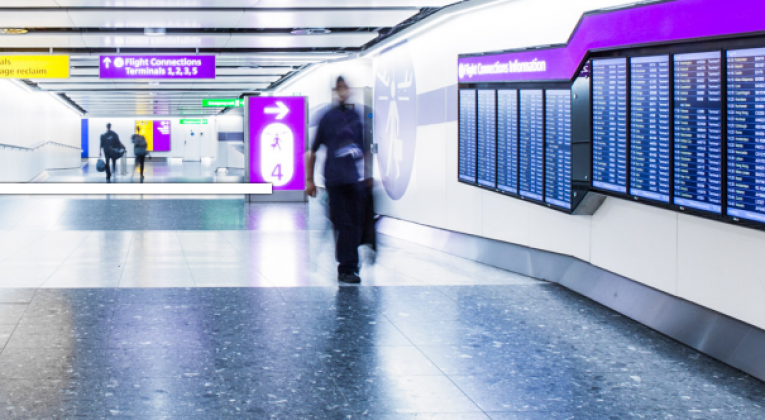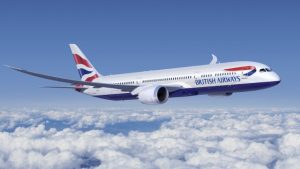Some links to products and partners on this website will earn an affiliate commission.
I was speaking to some friends in Scotland recently and they mentioned a political development at Holyrood that had passed me by – namely a loose agreement between the SNP and the Scottish Conservatives to work together to reduce (and ultimately abolish) Air Passenger Duty for flights departing from Scottish airports.

I think this could have a more wide-ranging impact than might be supposed (as I’ll explain in a moment), but first here’s a (very!) quick refresher on Scottish Politics:
The creation of the Scottish Parliament in 1999 saw substantial powers devolved from Westminster to Holyrood, and this is a process that is still ongoing. In particular, after the 2014 independence referendum, Prime Minister Cameron established the Smith Commission to examine how additional devolution of powers (promised during the referendum campaign) should be fulfilled. The recommendations of the Smith Commission were (mostly) enacted by the UK Government through the Scotland Act 2016. Of particular interest to us is the fact that the newly devolved powers include the ability to set (or abolish) Air Passenger Duty in Scotland.
The SNP are by far the largest Party in the Scottish Parliament, but crucially, do not currently have a majority. For the most part, the SNP therefore governs with support from the Scottish Green Party.
The SNP wants to start reducing Air Passenger Duty as soon as they can (April 2018), halve it by 2021, and ultimately abolish it – but the Greens are totally against the idea. This means that the SNP need to persuade at least some Labour, Liberal Democrat, or Conservative Members of the Scottish Parliament to vote with them if the reduction is going to happen.
Ordinarily, you would expect opposition parties to find a reason to oppose what a governing party wants to do, even if they actually agree with the broad aim (that’s politics!), so it wasn’t clear how First Minister Sturgeon would be able to reduce Air Passenger Duty in practice.
The Lib Dems and Labour have so far stuck to the usual opposition hymn-sheet and are opposing any reduction, but the Conservative position is more interesting. Having rejected reductions on the grounds of cost until relatively recently, they’ve U-turned and now only disagree on the precise implementation rather than the principle.
The SNP and the Conservatives are far from natural bed-fellows, so I wouldn’t say any deal is 100% solid until after the vote has actually taken place, but there is now a very strong likelihood that the Air Passenger Duty reduction will get sufficient votes to pass. The cross-party Finance Committee of the Scottish Parliament has just given firm (if qualified) backing to the changes too.
The end of Air Passenger Duty in the UK?
Obviously this might be of interest to Scottish travellers (and for those of us elsewhere who are willing to travel up), but there is a broader implication for the rest of the UK too which is worth examining.
In normal circumstances, I would never bet on a Government (regardless of Party) to voluntarily give up on £3-4 billion in revenue from a tax that many (most?) people probably don’t even realise they are paying – but we live in interesting times.
1)
The first thing to note is that you can, of course, already avoid Air Passenger Duty by starting a journey from the Highlands or Islands of Scotland – with Inverness being the obvious choice given that BA flies there.
To help compete with flights from the Republic of Ireland, Air Passenger Duty was also abolished in Northern Ireland for direct flights over 2,000 Miles.
The point here is that there is an existing precedent of flexibility in relation to APD, when it has been deemed that ‘unfair’ competition requires it.
2)
The second thing to be aware of is the fears that airports in the North of England have expressed about the reductions to APD in Scotland and the competitive imbalance that would create. Newcastle, Manchester and Liverpool in particular are concerned.
3)
From May this year, Manchester and Liverpool are both about to get new (relatively powerful) City Region Mayors.
Unlike existing Mayors and Council Leaders, the City Region Mayors are intended to be serious players on the national (and international) stage – more like the Mayor of London than anything else. Encouraging investment into their area is a big part of the remit and ‘defending’ the local airport is bound to play well politically.
I think it is inevitable that you will see the Mayors lobbying for ‘a level playing field’ with Scottish airports regarding Air Passenger Duty, within hours of any reductions in Scotland.
4)
Devolving APD rates in London to the Mayor has long been mooted.
If regional airports were allowed to reduce or scrap APD to compete better with Scottish airports, the London airports would obviously scream blue murder if they didn’t get the same deal.
5)
Brexit.
If the plan is to show that ‘Britain is open for business’ then cutting APD is a pretty good way to do that. It’s high profile, relatively low cost, and there are reasonable arguments to suggest it might boost the economy a little.
The fact that any economic benefit would probably be at the direct expense of our EU partners may raise a ministerial smile or two as well…
What’s the time-frame?
Clearly much of this is speculative, but I think there is now a clear logical chain as to how and why Air Passenger Duty might be scrapped (or at least radically reduced). Basically, once you start devolving a tax like APD, there is a competitive incentive for nations and regions to drive it lower and lower.
The SNP plan is to start reducing APD in Scotland in 2018 and complete the 50% reduction by 2021. I suspect the rest of the UK will follow closely behind – and may even leap ahead of that schedule depending on how Brexit pans out.
Bottom line
Regardless of what you think about the pros and cons of Air Passenger Duty, it looks to me like its days could well be numbered.
What do you think?







Unfortunately, I suspect that BA would just increase surcharges to offset any reduction in APD.
And I’m not sure that fares would actually decrease. I often find that a one-way TO the UK costs more (despite no APD) than a one-way OUT of the UK.
Haha, yeah I almost said something very similar in the article. I’m not quite sure what BA’s justification for such a move would be, but have little doubt they could find one. ‘Enhancing the booking experience, following an extensive process of listening to what our loyal customers want’ has a nice ring to it I think.
Fortunately, other airlines would not play the same game.